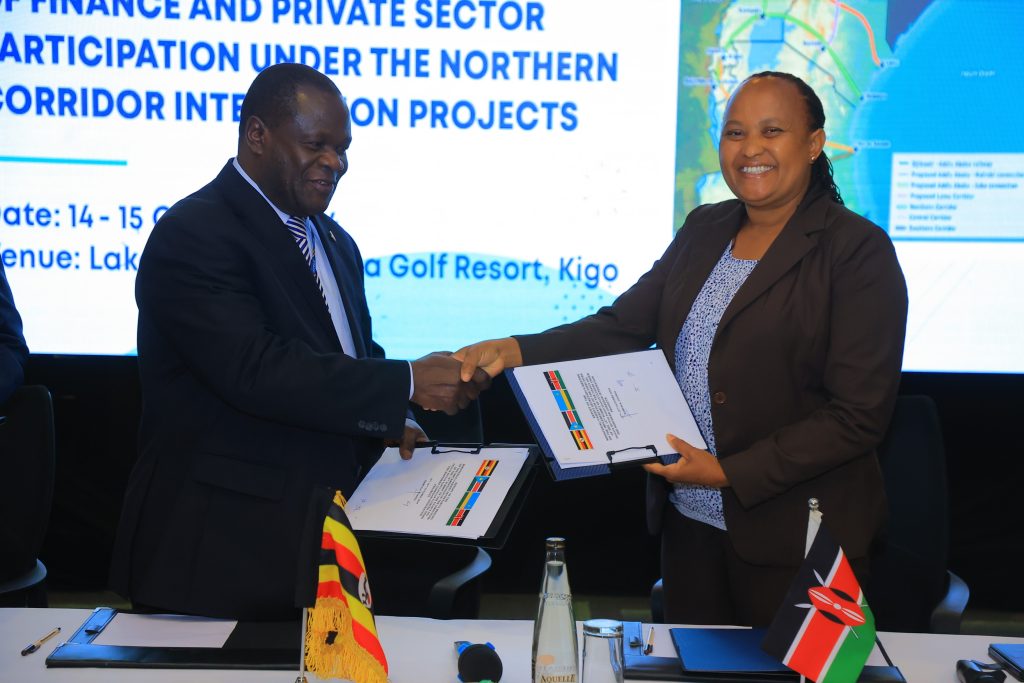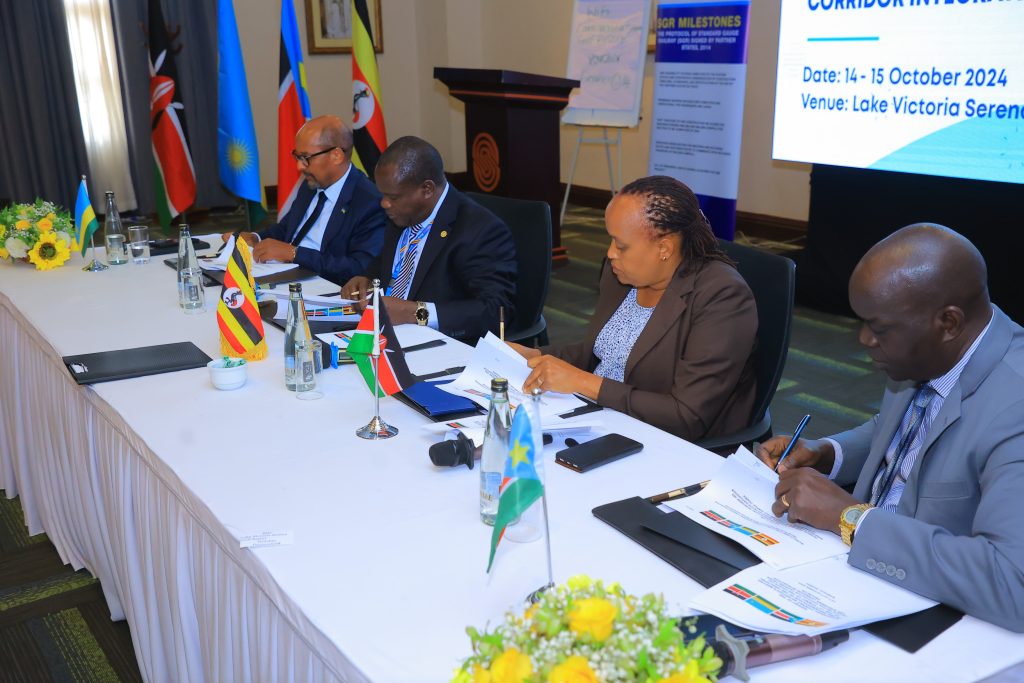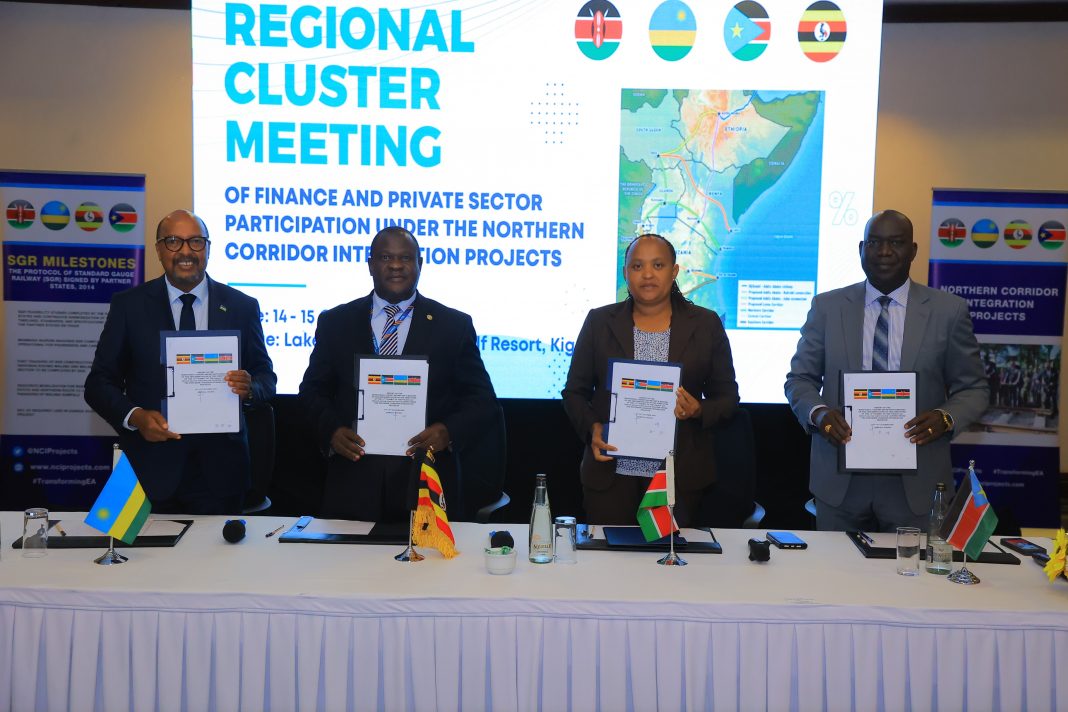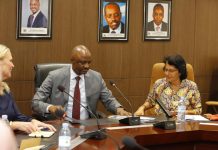A significant boost to regional economic integration has been announced, following a two-day Finance and Private Sector Participation Cluster Regional meeting in Kampala, Uganda.
The meeting, attended by delegations from Kenya, Rwanda, South Sudan, and Uganda, reviewed and updated the status of implementation of directives on finance and private sector participation under the Northern Corridor Integration Projects (NCIPs).
Mr. Patrick Ocailap, representing Uganda’s Minister of Finance Matia Kasaija unveiled an array of impressive achievements in the country’s implementation of the NCIPs.

In the rail sector, he said Uganda has acquired 58% of the right-of-way for the Standard Gauge Railway (SGR) on the Eastern Route (Malaba-Kampala) and signed the civil works contract.
The country has also achieved the One Network Area initiative since 2014, enabling flat rates for voice, data, and SMS across partner states.
Additionally, Uganda has approved the National Payment System Act, 2020, making mobile financial services interoperable among operators.
He told the regional members states that Uganda has established a Project Preparation Facility (PPF) under the National Planning Authority to enhance project preparation and structuring.

In the oil sector, Uganda has made full equity contribution of USD 376 million to the East African Crude Oil Pipeline (EACOP) project and completed 100% acquisition of right-of-way for the pipeline.
He also announced that civil works for the terminal and jetty in Tanga are complete, and over 700 kilometers of line pipes have been received from suppliers.
Uganda has also partnered with Alpha MBM Consortium to develop a 60,000 barrels per day refinery in Hoima, with negotiations ongoing to conclude key commercial and legal agreements.
Mr. Ocailap encouraged partner states to ensure full implementation of the 14th Summit directives and cluster recommendations.

Kenya’s Cabinet Secretary, Elizabeth Shungula, highlighted her country’s growing partnership with the private sector. “We are managing over 45 projects across various sectors, at varying stages of development, negotiation, and implementation,” she said.
Ms. Shungula hailed the NCIP meeting as a valuable opportunity for partner states to collaborate on private sector financing for infrastructure development.
“This meeting presents a unique chance for us to work together to mobilize private sector financing for infrastructure development, aligning with NCIP objectives,” Ms. Shungula said, listing notable strides in growing partnerships with the private sector, particularly in enhancing payment system interoperability.
“Our Public-Private Partnership Directorate is managing over 45 projects across various sectors, advancing financial inclusion and economic growth,” Ms. Shungula noted. “Our vision is becoming a reality, with tangible results in project development, negotiation, and implementation.”
Rwanda’s High Commissioner, Joseph Rutabana, emphasized the critical importance of implementing NCIPs. “Infrastructure development presents invaluable opportunities for economic growth and enhanced regional integration,” he noted.
Rwanda’s High Commissioner to Uganda, Joseph Rutabana, underscored the importance of implementing the NCIPs, emphasizing its critical role in regional economic growth and integration.
“Infrastructure development presents invaluable opportunities for economic growth and enhanced regional integration,” Rutabana noted, highlighting the need for active participation in financing initiatives and private sector involvement.
Rutabana expressed gratitude to Uganda for hosting the NCIP meeting and reaffirmed Rwanda’s commitment to collaborating with partner states on joint projects. Rwanda is set to host the 15th NCIP Summit, with dates to be announced after cluster meetings across all partner states.
South Sudan’s Samuel Yanga Mikaya pledged to finalize outstanding legal procedures to ensure the requisite framework for operationalization of protocols under the Finance and Private Sector Participation Cluster.
“The Standard Gauge Railway is crucial for enhancing regional transport efficiency and competitiveness,” Mikaya noted. South Sudan has a special interest in the project’s success.
The meeting identified high financing costs as a major hindrance to project finalization. To address this, partner states committed to continuously engaging private sector apex bodies to mobilize funding for NCIP projects.
Key decisions included approving the updated implementation matrix, directing technical officials to implement pending directives, and scheduling the Refined Petroleum Products Pipeline Cluster meeting in Nairobi.
Amb. Richard Kabonero, Uganda’s National Coordinator of the Northern Corridor Integration Projects (NCIP), emphasizes the vital role of the private sector in driving regional economic growth. “Local companies participating in the East African Crude Oil Pipeline project and suppliers providing materials are shining examples of successful private sector engagement,” Kabonero noted. He cited the reduced call costs within the region, thanks to the One Network Area initiative, as a testament to the NCIP’s effectiveness.
The NCIP is a collaborative effort by the countries of the Northern Corridor to improve transportation, energy, and ICT infrastructure. The goal is to increase trade efficiency, promote regional integration, and support sustainable development in East Africa.























